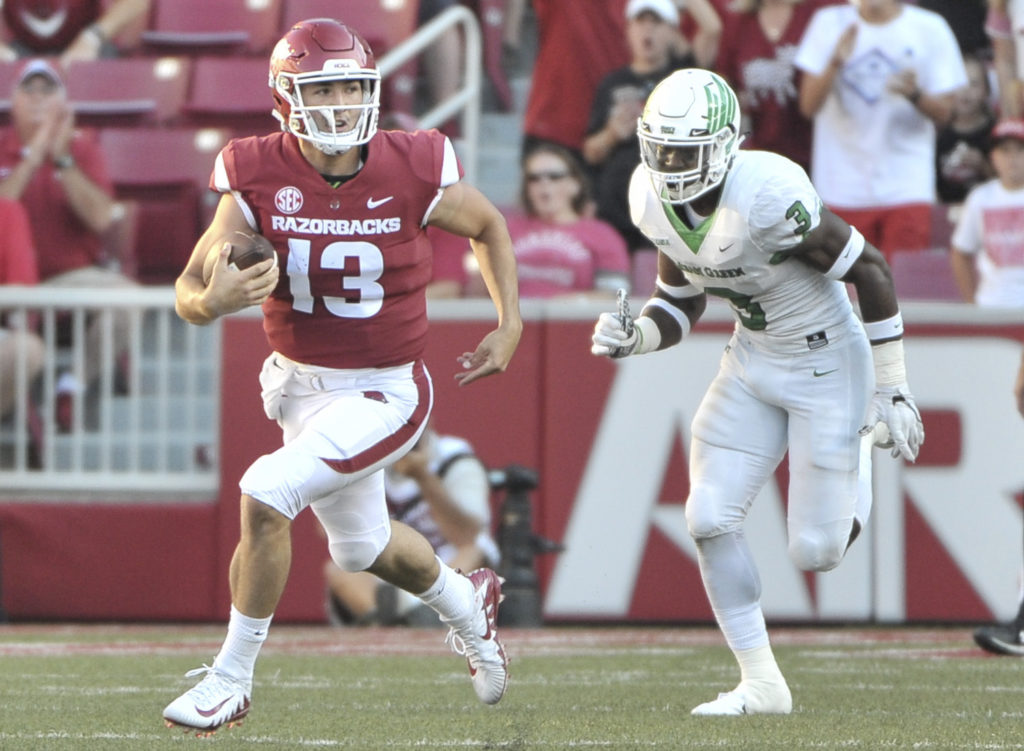Two schools change rules after investigation
Five other universities named in USA TODAY Network report ignored questions.
Two of at least seven universities identified in a USA TODAY Network investigation for unwittingly recruiting athletes with histories of sexual misconduct will change their procedures to avoid such a scenario in the future.
Both the University of South Florida and Slippery Rock University in Pennsylvania confirmed they will more fully vet student-athletes trying to transfer to their institutions.
But five others — Texas Tech University, San Diego State, the University of North Texas, Southern University, and Capital University — have ignored repeated questions about how they intend to address their shortfalls.
Each of those schools previously told the USA TODAY Network that they were unaware of their athletes’ prior misconduct until the news organization brought it to their attention as part of its four-part series, “Predator Pipeline,” which was published Dec. 12.
The investigation found at least 33 athletes since 2014 who have transferred to NCAA schools despite being disciplined for a sexual offense at a previous college. The actual number is likely far higher, as the vast majority of colleges refuse to release records from disciplinary proceedings, even though federal law gives them explicit permission to do so.
North Texas recruited two such athletes: linebacker Tim Faison, who played the last two seasons, and defensive back Darius Turner, who played in 2016. Senior Associate Athletic Director Eric Capper said previously that no one in UNT athletics, including head coach Seth Littrell, knew about their violations.

UNT’s athlete code of conduct already disqualifies those disciplined for serious misconduct but provides no protocols for checking athletes’ backgrounds.
UNT student leaders expressed outrage at the athletic department’s lack of commitment to fix it.
“If we have athletes who play for us and represent us who are actual assaulters, that’s just ridiculous to us,” said UNT Student Government Association President Yolian Ogbu.
She and other student leaders urged campus administrators to adopt The Tracy Rule, a zero-tolerance policy barring athletes disciplined for sexual and violent offenses and named for rape survivor and advocate Brenda Tracy.
Among its vetting procedures: a requirement that the Title IX coordinators at each transfer-athlete’s previous institutions state if the athlete was investigated for any sexual or gender-based offenses.
UNT in a statement declined to comment on the students’ efforts or acknowledge its football team’s oversights.
“UNT takes the safety and well-being of all students very seriously,” spokeswoman Leigh Anne Gullett said in a statement. “We are thorough and diligent in researching best practices in ensuring campus safety for our student body and will continue to do so.”
Meanwhile, the University of South Florida broadened questions on its transfer-eligibility questionnaire, or “transfer tracer,” to capture more information about past disciplinary issues, said Associate Athletic Director Brian Siegrist.
Unlike Slippery Rock, however, USF would not commit to denying playing opportunities in the future to athletes found responsible for sexual misconduct, such as Tyrik Jones, a defensive end for the Bulls in 2019.

Jones last year transferred to USF from Arizona Western College, where after a female student in February 2018 told campus officials that Jones forcibly fondled and exposed his genitals to her when she gave him a ride in October 2017, according to a police report. The school found him responsible in a conduct proceeding for sexual misconduct and placed him on disciplinary probation for 17 months, campus disciplinary records show.
When Jones signed with USF 10 months in, the tracer USF sent Arizona Western asked only if Jones had been disqualified or suspended for disciplinary reasons. So Arizona Western marked “no,” said Nikki Hage, associate dean of campus life and student conduct for the college.
USF is currently reviewing its policies to determine if any changes to admissions processes are necessary, Siegrist said.
NCAA could take action
The NCAA itself may take action soon.
Its highest governing body, the Board of Governors, said last month that it will adopt new sexual-violence policies amid pressure from Congress calling for an independent study of the NCAA’s lack of accountability for violent athletes. But the NCAA offered no details on what those policies will entail.
Onlookers remain skeptical of the board, which for years has rebuffed calls from activists, U.S. senators and its own study commission to take a tougher stance on the issue.
NCAA President Mark Emmert hinted that the new policies will address the current absence of vetting procedures.
“There’s no mandated background checks right now,” Emmert said at the organization’s annual conference in January. “We want to make sure that everybody has that information and that everyone is making decisions based on the best information available, and we’re not sure that’s the case today.”
But like USF, Emmert would not commit to banning or otherwise penalizing athletes with documented histories sexual misconduct.
While the NCAA disciplines athletes for profiting off their own likeness, nothing in its 440-page rulebook stops those found responsible for sexual or violent misconduct from competing. Even when expelled, suspended or criminally convicted for sexual offenses, athletes can transfer to other NCAA schools and return to the field in a year or less.
“Every one of the cases of a student-athlete are all unique,” Emmert said at the conference. “Let’s make sure the schools have all the information in front of them and they know exactly what the backgrounds of student-athletes are and what their experiences have been, and then they can make a decision based on the information that’s in front of them.”
USA TODAY’s Dan Wolken contributed reporting.